Power Redefined - An Indigenous Perspective
“You have a right to be where you are,” began Sarah Pocklington, acting arts program manager for the First Peoples’ Cultural Council. Identity was the first order on the table at the FPCC’s inaugural Indigenous Music Retreat in May. The five-day artist development program, spearheaded by Pocklington, brought musical artists of various ages together with industry mentors to be educated on everything from writing and performing to licensing and collaborating.
We sat in a circle, eyes of various pigments observing a spectrum of skin tones. Many participants, myself included, came to the retreat uncertain about how to self-identify. Most of us have mixed ancestries and with it, confused if not unresolved feelings toward ourselves, maybe our family history, and antagonizing looming questions: Who am I? Why am I here? Where do I belong?
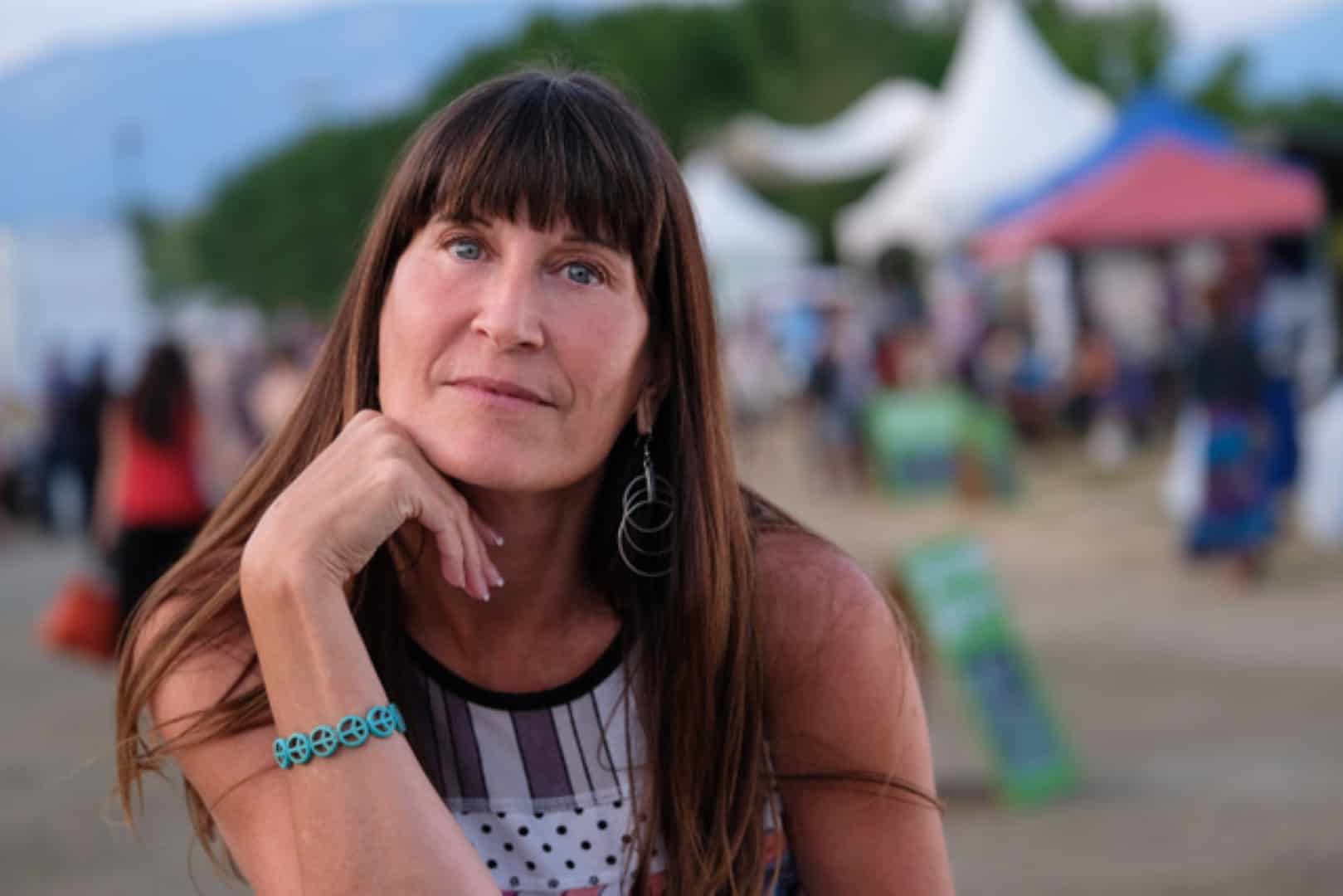
Sarah Pocklington. Photo: Craig Pulsifer.
I also went in feeling unentitled. But that first morning, no sooner had I started my usual self-downplaying introduction where I state I am only a fraction Indigenous, Pocklington stopped me. “We don’t quantify.”
Dancing with Identity
To Jessica K^nikahluyah Hill, the answer is simple, prescriptive: “Music - and singing - is an expression that is in your soul and it will always be there. It is a medicine that helps us never forget who we are or where we come from. Carve a path by knowing who you are, using your voice with respect and honouring your traditions.”
Hill worked in a Mohawk cultural organization in the mid-90s with a mandate to promote, enhance and maintain culture and language. “We initiated a young singing group of boys to travel to another Mohawk community to a Confederacy Sing. A Sing is a social gathering of Confederacy communities to express oneself through Iroquois Song and if there is music you’ll want to dance too.”
The use of the Mohawk language is an essential part of the event and it was likely the first time the youth sang with elders. “This was important,” affirms Hill, who is the new chief of the Oneida Nation in Ontario. For the past 18 years, Hill has been a devoted entrepreneur working with other First Nations to define governance and create organizations that work for them.
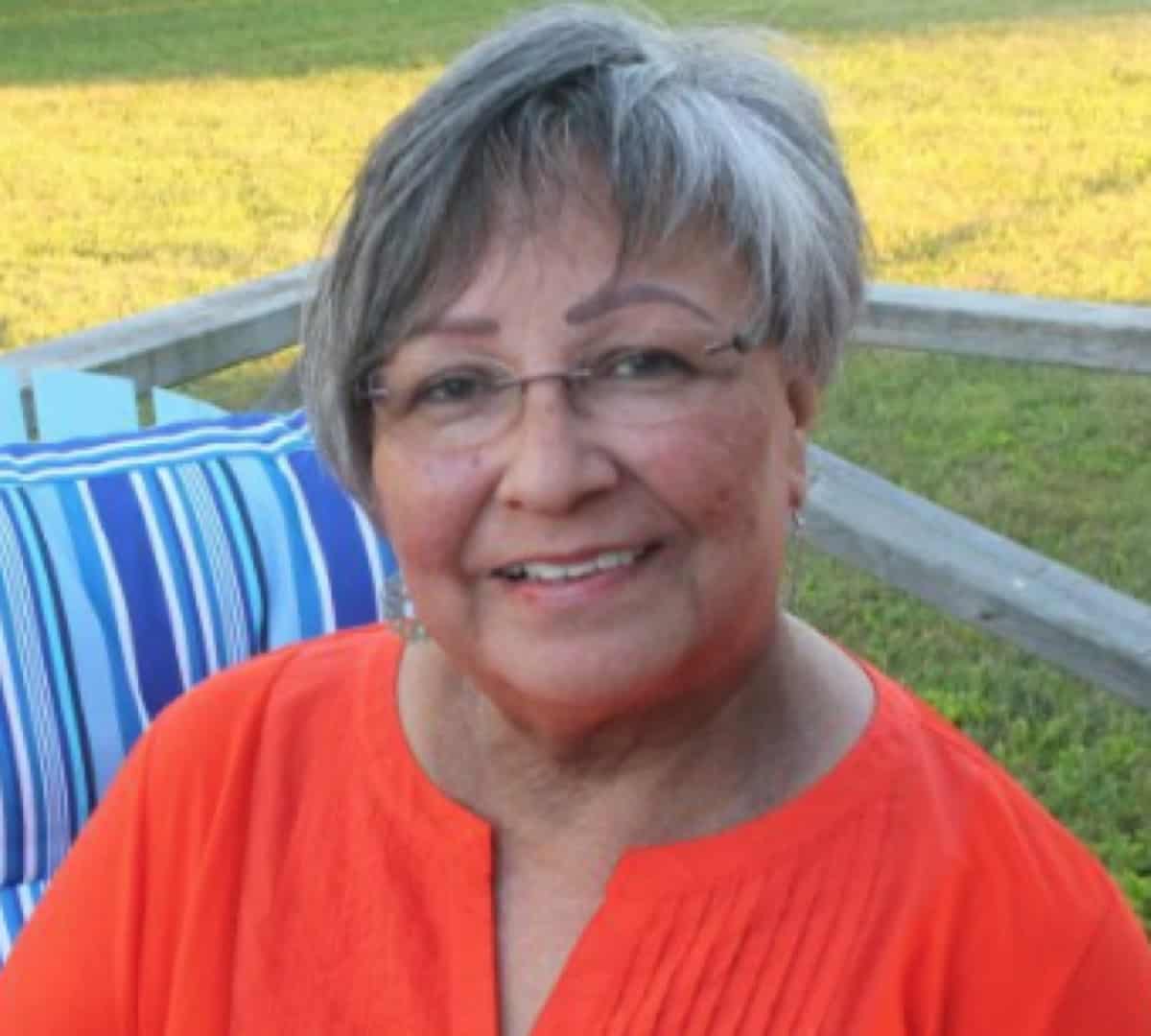
Jessica Hill. Photo: London Free Press.
Carve a path by knowing who you are, using your voice with respect and honouring your traditions. - Jessica Hill
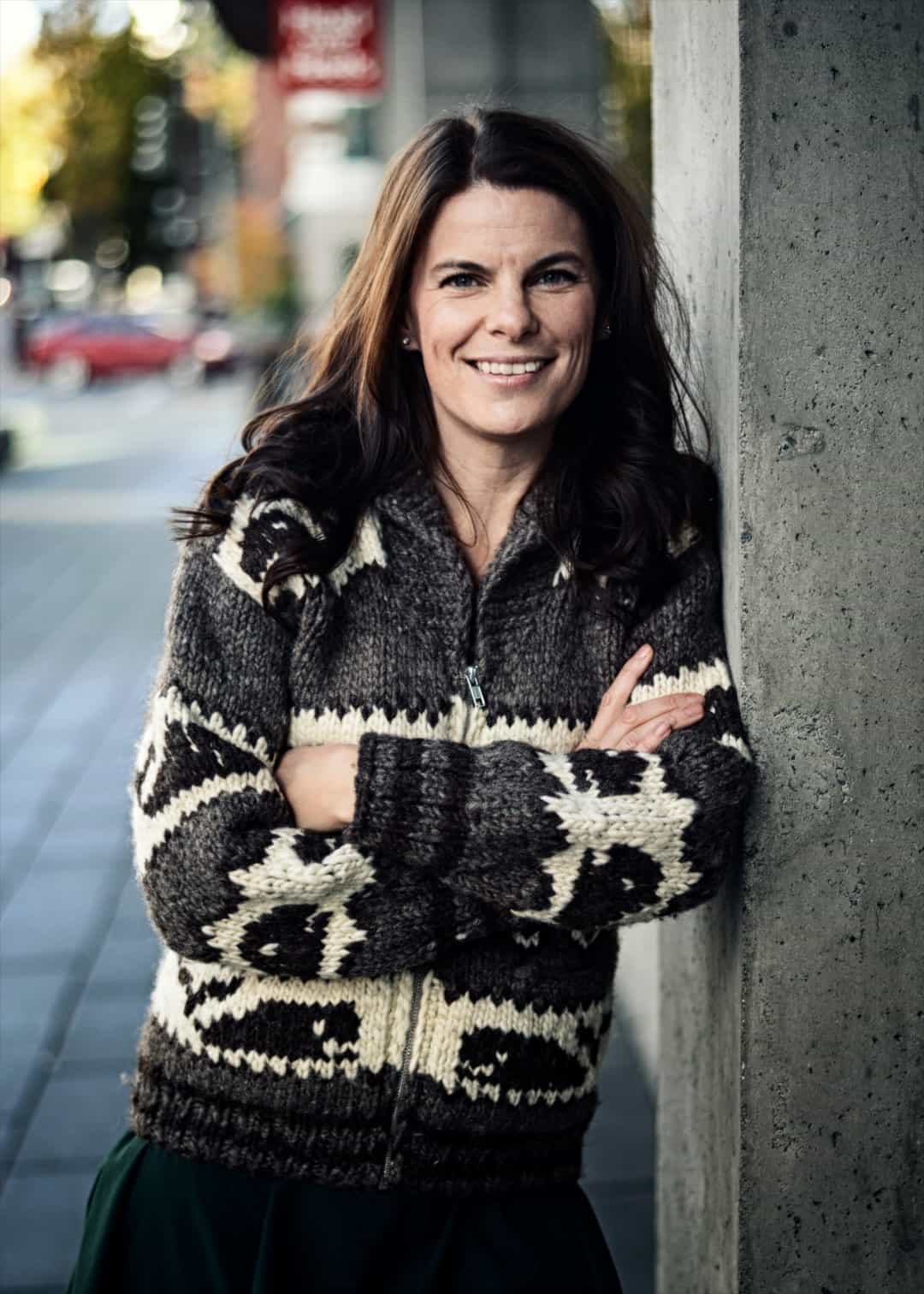
Shannon Waters. Photo submitted.
For Shannon Waters, the identity dance began with unsure footing. “I am mixed blood,” says the Vancouver Island-based physician. “Coast Salish, Indigenous on my mother’s side and Swedish, Hungarian and Scottish on my father’s side. I look white.”
“Woven into my sense of self is also the deep trauma that comes with being Indigenous in Canada. The removal from our lands, harm of the residential schools, effect of the sixties scoop, depletion of our languages and outlawing of our spiritual practices. This trauma weighs heavily on Indigenous minds, bodies and spirits and yields health impacts.”
And while this legacy is something she is learning to live with and heal from, she has no disillusions: “My journey is easier because I look white.”
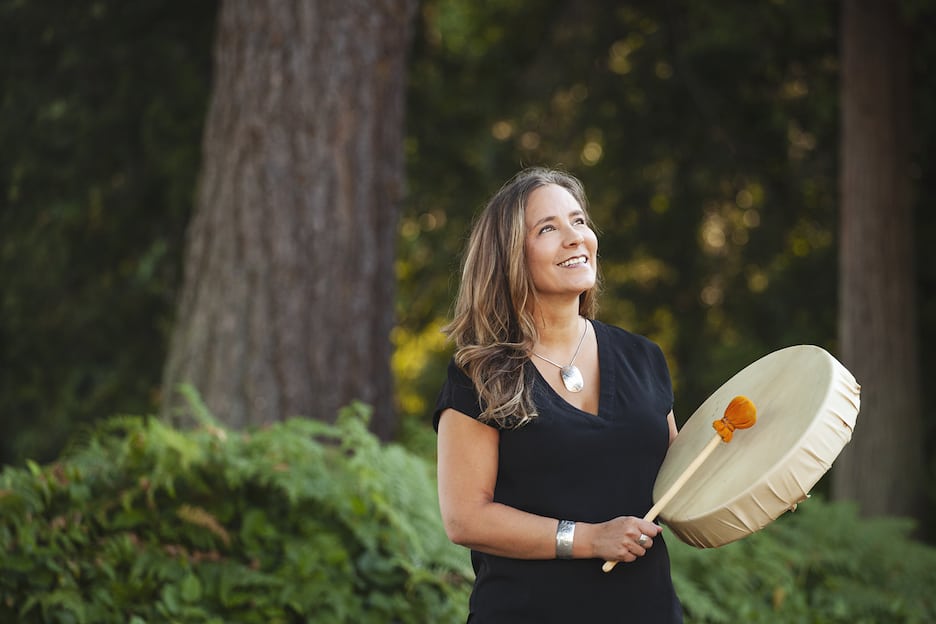
Brave-hearted aviator Teara Fraser on Musqueam traditional territory in Vancouver, B.C. Photo: Wonderful Ida.
“I am a proud Métis woman,” asserts Teara Fraser. The pilot’s path is clearly carved. Born in Hay River, Northwest Territories with homelands in Fort Chipewyan, Alberta, Fraser is a fiercely determined visionary, at once on a journey to deeply root herself in traditional knowledge and culture and soaring through uncharted skies in a male-dominated industry.
Her second time in a small plane, she thought I don’t care what it takes, I will be a pilot. One year later she had a commercial pilot’s license. Now an experienced aviator, last month she launched the first ever Indigenous woman-owned small-plane company in Canada, Iskwew Air (Iskwew is a Cree word for “woman”). The airline, based at Vancouver International Airport on Musqueam traditional territory, received a blessing from the Musqueam people. “My quest to understand who I am as an Indigenous woman, who I am as a settler woman, and how I bridge between the dominant worldview and the Indigenous worldview has undoubtedly influenced my perspective on power.”
We are Forest, Warriors on the Path
Identity comes from a connection to our ancestors, to their stories, to the land; the stronger our connection and understanding, the greater our power.
“I am calling this power warriorship: leading brave-hearted,” declares Fraser, who is inspired by the stories of Indigenous warrior women - stories of strength, wisdom, warriorship, humanness, hope and love. "I see the resilience of sisters thriving in spite of, or perhaps because of, their adversity – connecting to intergenerational knowing, creatively responding to this harsh environment to survive, sustain, and grow. Witnessing this power, this brave-hearted warriorship, is breathtaking.”
When we listen to the wisdom of our ancestors - this is the power waiting for us. This is the power within us. When we are connected in this way, we are all powerful. - Teara Fraser
Fraser reminds that Indigenous women have been matriarchs, leaders, knowledge keepers, strategists, healers and sophisticated entrepreneurs since time immemorial. She maintains that Indigenous ways of knowing and being are what the world is hungry for, what the world needs for survival, for sustainability and to thrive once again.
“As humans, we are wired for connection, for the circle – this is where we gather strength, wisdom, resilience and belonging. I’ve come to know that we are all connected, we are all related, we are all one – and I am never alone. When we listen to the wisdom of our ancestors – respecting ourselves, each other, the land and spirit, we can reclaim, restore and return to individual and collective well-being. This is power,” avows the aviator. “This is the power waiting for us. This is the power within us. When we are connected in this way, we are all powerful.”
Power comes to Waters when she taps into the universal energy and accesses all aspects of herself - daughter, sister, friend, wife, mother, auntie, physician, leader - to do her work. The fair-skinned, blue-eyed MD admits that at times she has felt she should be quiet in discussing what it means to be Indigenous in Canada. “Indeed, there are times when my role is done best in the background,” she posits, adding, “In speaking your truth you can let the heaviness go.”
When Waters initially looked back at the ancestral story of her people, she was frustrated to find little about the women’s journey. She later pivoted, seeing the lack as an invitation to walk in the footsteps of the women who came before her and experience the story herself. As she trod the 57-kilometre route, past the Koksilah River her mother grew up next to, her perspective transformed into one of understanding. The journey gifted her strength and wisdom for the rest of her life's journey. Today she speaks confidently, integrating teachings about the gifts we receive and how our job is to use them.
“I embrace and identify with my Indigeneity. My connection to the land, holistic perspective, respect for cultural teachings, the importance of family relations and my spiritual bond to my ancestors make me who I am.”
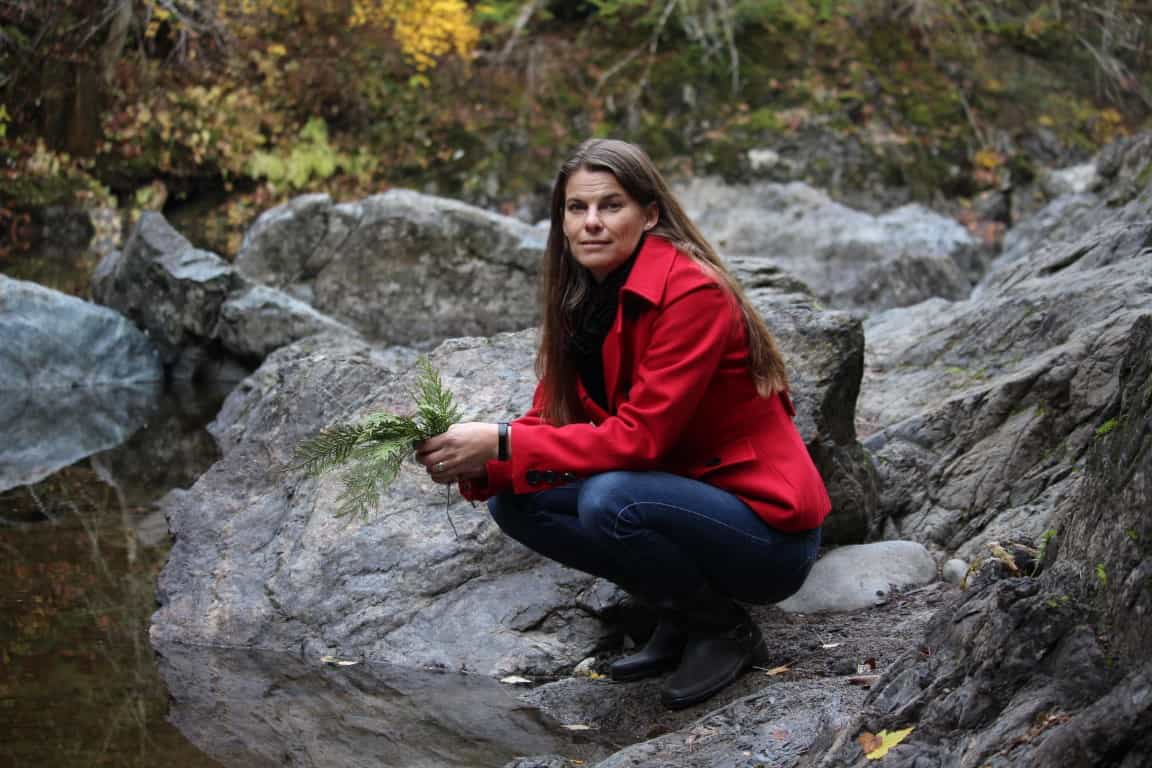
Waters by the Koksilah River in Cowichan Valley, part of her ancestral path. Photo: Sandy Powlik.
My life is a gift. My journey has a purpose. Who I am brings me honour and responsibility. - Shannon Waters
"Everything that’s gone before us is within us. It’s in our DNA," echoes filmmaker Dianne Whelan. "We are forest; below the surface all our roots are connected."
Three and a half years ago, Whelan set out to traverse the world’s longest trail in search for the lost wisdom of this land's ancestors. She is hiking, biking, canoeing, snowshoeing and filming her way along the 24,000-kilometre trail. She is travelling the Old Way, the slow way of the turtle, and asking questions of people connected to the land. At a PowHERhouse lunch in Regina last month, Whelan relayed a nugget passed on to her by the late Grand Chief Ben Sylliboy of Waycobah First Nation in Cape Breton that has profoundly impacted her journey: “The old way isn’t the way you travel; the old way is what you carry in your heart.”
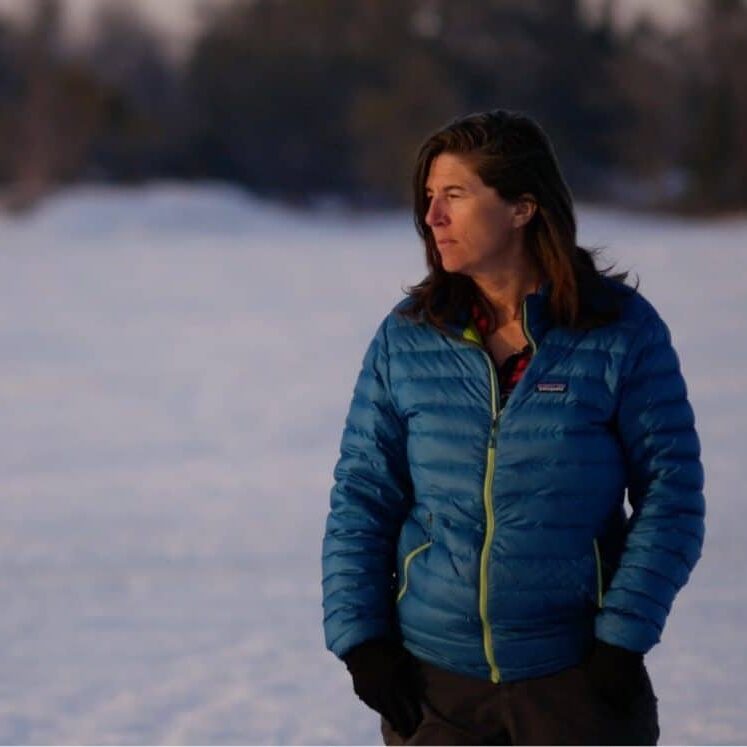
Dianne Whelan. Photo: Ann Verrall.
500 Days In The Wild is Whelan’s real-life epic odyssey, unravelling and revealing profound discoveries and implications of ancient knowledge in real-time. It is "the continuation of an old story – the artist dropping out of society and reconnecting to nature – but it is also a new story, a realization that we will not survive traveling solo." (500 Days) "Start connecting with what’s really important to you,” Whelan urges. “Purpose is found in the heart."
Position, Leadership and Legacy
Power has often been associated with position, yet real power lies in what one does in a position, how one positively impacts and progresses society forward from a position of leadership.
Teara Fraser is reclaiming language and matriarchal ways of being and integrating them into the non-traditional field of aviation. Her airline will connect people and provide necessary transportation and services to far-reaching communities. The sky is no limit for the Métis pilot, though, who has a Masters in leadership and is a certified executive coach, CEO of non-profit initiative Give Them Wings and founder and CEO of the Raven Institute.
“I have a responsibility,” states Fraser, “to share what I have learned with others. I believe in a co-created circle of learning. I have so much to learn and young women have so much to teach me. Collaboration is when we create space for each other to be grounded and when we lift each other up to take flight. If we can remember and access this wisdom, we can individually and collectively contribute to the transformative change needed in our world.”
This September, Fraser launched Iskwew Air, Canada's first Indigenous woman-owned airline.
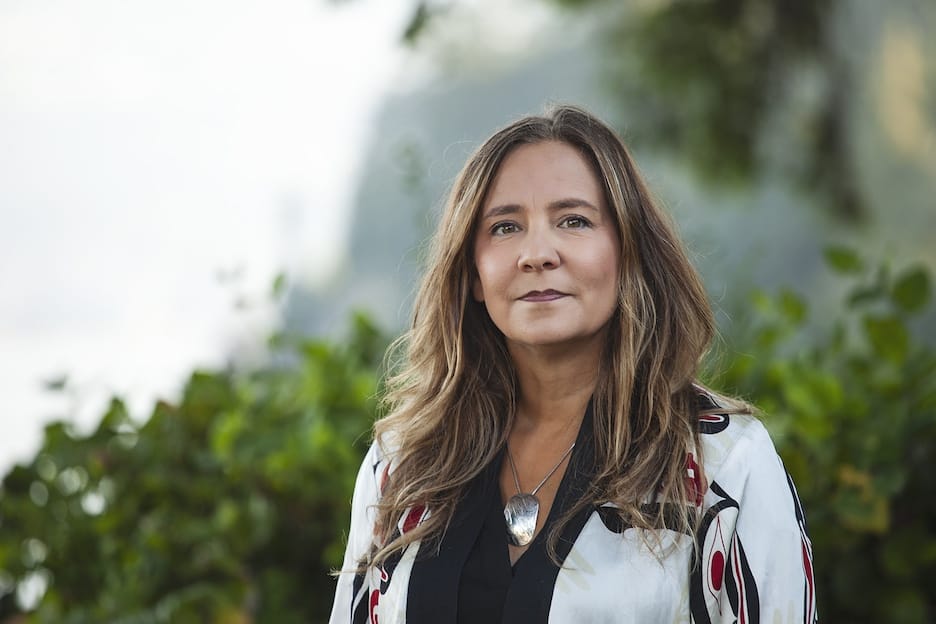
Teara Fraser. Photo: Wonderful Ida.
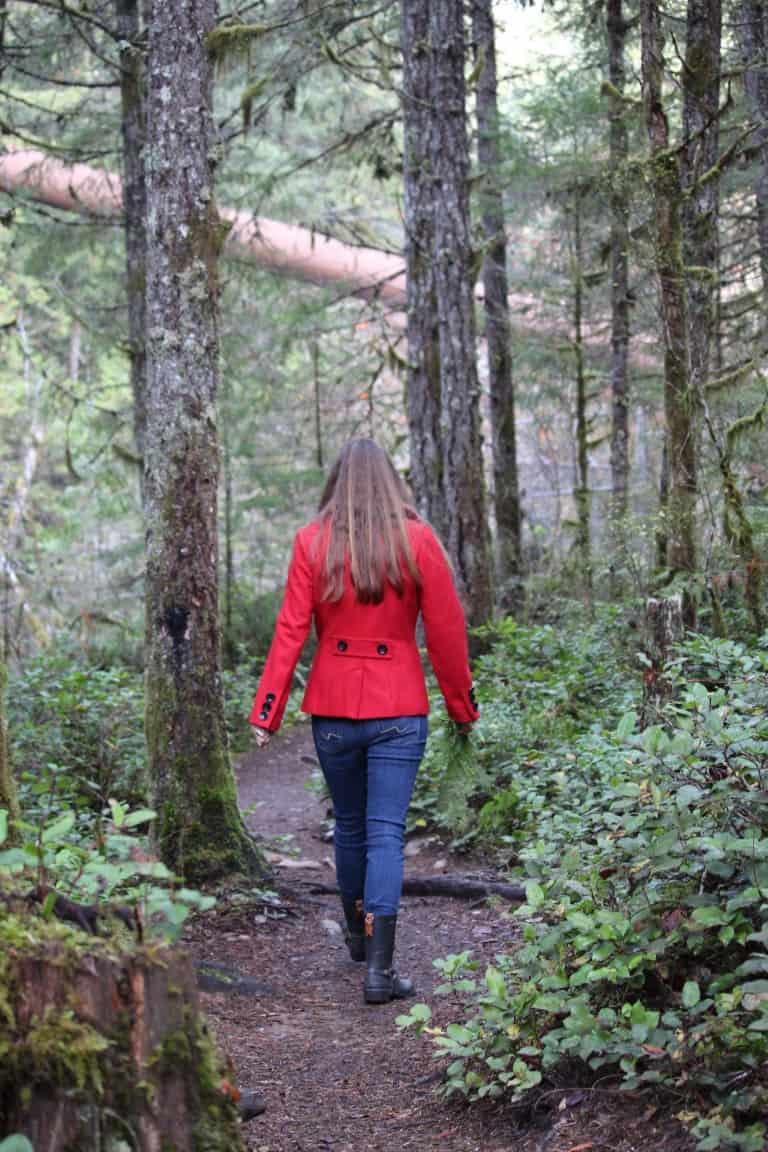
Shannon Waters is on a mission to collaboratively create tangible positive changes for Indigenous women in her home community - and thus, spur positive changes for women worldwide. She tells of a chronically ill maternal aunt who often had to go to the hospital. “She told me that she was treated better when I was with her. That made me sad, angry and wanting to do more.”
Waters is a public health and preventative medicine specialist and the medical health officer for her home territory, the Cowichan Valley. She speaks to the importance of maternal, child and family health, mental wellness, and the changing environment to the region’s over 80,000 residents. “My life is a gift. My journey has a purpose. Who I am brings me honour and responsibility. I need to use my privilege and my voice to transform the health system from within.”
Jessica Hill has been leading for decades. She has led community cultural organizations, sat on councils and was director of operations for Oneida Nation prior to becoming chief. Language and culture have always been the cornerstones. As chief, she champions child welfare, better health care, “the best education our children can have that’s relevant, that includes our language and culture, and [to] make sure that the generations to come are taken care of.” (London Free Press)
Use your language to demonstrate respect. Be humble, even if your voice is beautiful. Let everyone try their hand at leading. - Jessica Hill
Hill, who has a master's degree in leadership education and notable political experience, imparts wisdom she learned from 12-year-old Mohawk boys: “Give your all to the task and honour generations of those among you and those that have gone before. Use your language to demonstrate respect. Be humble, even if your voice is beautiful. Never speak while others speak, have patience. Be a part of learning and be open to new things. Let everyone try their hand at leading. This of course is only a part of what goes into being a part of something greater than yourself.”
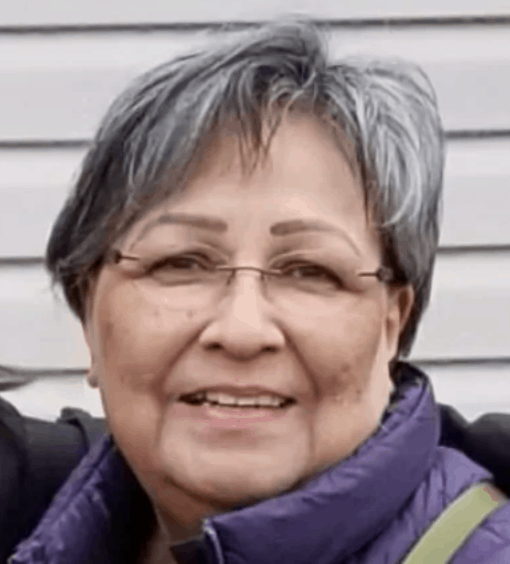
Jessica Hill. Photo: CBC.
Time to Take Flight
As I learn about these women bringing their unique skills, visions and voices forward, leading their own cultural revolutions, I wonder: What is the legacy I want to leave?
When Pocklington and I met up last week, she was lit up. “I am so excited,” she beamed. Years of success in the Indigenous women’s trio Asani notwithstanding, the former adjunct professor is talking about helping Indigenous artists. “This is where I want to be, at the grassroots... of a sustainable Indigenous music industry where everybody lifts everybody up.”
Thinking back to the retreat, there was solace in knowing many in the circle felt the same insecurity and uncertainty as I, all the while proceeding instinctively and arriving at the same place at the same time. All of us equally compelled. Out of that first hour came a welcoming, a belonging, a connectedness and an invitation to be solid in our roots, to own all of who we are. No apologies and no permission needed.
I am grateful to be living in a time where more than ever women are raising their hand, taking action and role-modelling what is possible for Canadian society and leadership. We must remember the lost wisdom and traverse the trail. We must strive for connection and collaboration. We must stand tall in our power. It is time, brave-hearted warrior women, to take flight.
Carve a path by knowing who you are, using your voice with respect and honouring your traditions. - Jessica Hill
Be steady on your feet and consider your role as a transformative change-maker. You are brave-hearted. You are a warrior. You are powerful. - Teara Fraser
To our ancestors and the future generations, thank you. Huy ch q’u O’siem. - Shannon Waters
Written by Sandy Powlik.
Photos: Craig Pulsifer; London Free Press; CBC, Sandy Powlik, Wonderful Ida.
Click here to stay in the know with PowHERhouse.

Beautiful
Insipiring
Sheros
It was an honor to read this